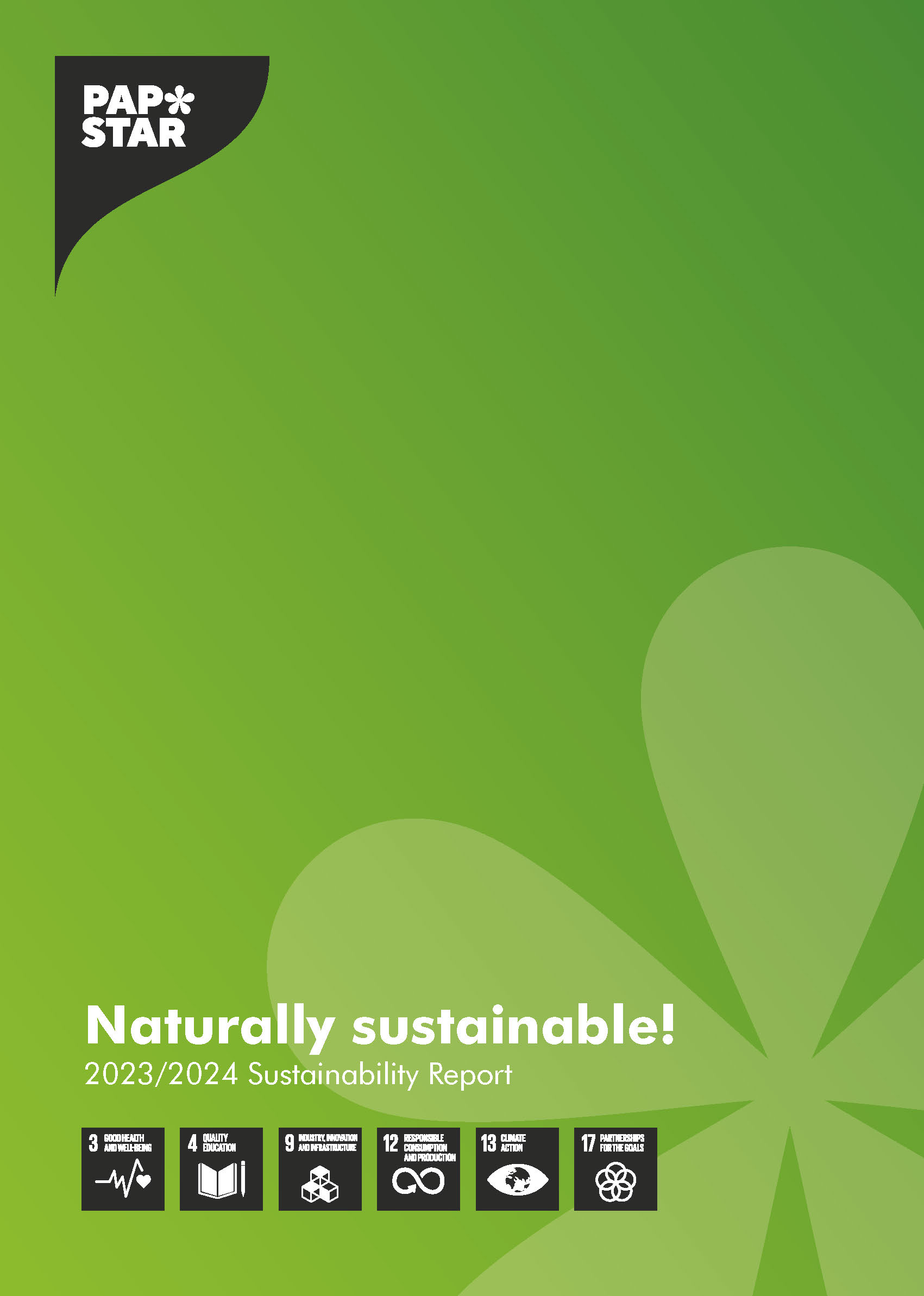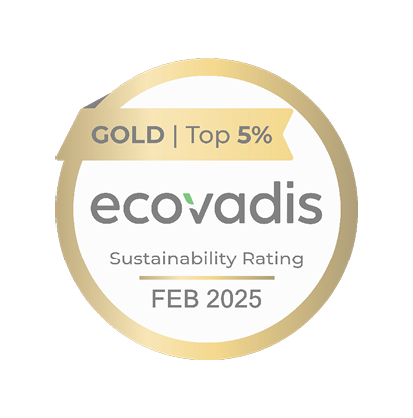Principle of action and core message
For PAPSTAR, sustainability makes up a significant part of the company's model for success and is deeply anchored in its DNA. On the basis of this fundamental understanding, decisions are made and ambitious goals set in order to be able to fully meet the demands it makes of itself and those of its customers.

Code of Conduct as the basis for values
Economic activity has a significant influence on the social and ecological environment. PAPSTAR is aware of the resulting responsibility, especially with regard to promoting ecological, social and ethical thinking and action. The principle of sustainability is firmly anchored in the company’s measures for action.
As a basis, the company has formulated essential basic values and standards in accordance with the ten principles of the United Nations Global Compact (UNGC) and adopted them as a Code of Conduct. As well as being binding for all staff, it is also binding for all suppliers and business partners.
OUR UNDERSTANDING OF SUSTAINABILITY
Hardly any other term has taken on so much meaning in recent years as the term "sustainability". But does sustainability mean in reality? One of the most widely used definitions can be found in the 1987 report by the United Nations World Commission on Environment and Development entitled "Our Common Future". Loosely translated, it states:
"Sustainable development is development that ensures that future generations are no less able to meet their needs than present generations."
This is an explanatory approach that PAPSTAR can endorse - in the firm conviction that sustainability is less about pursuing individual measures in insolation and more about delivering a comprehensive perspective. Accordingly, multiple tasks and challenges to be taken into account in terms of sustainability are placed at the top of the list of daily actions and are increasingly crystallising into the brand's core message.

![[Translate to Englisch:] [Translate to Englisch:]](/fileadmin/_processed_/e/2/csm_Fotolia_142143670_M_01_8d9a0d0890.webp)






![[Translate to Englisch:] [Translate to Englisch:]](/fileadmin/_processed_/d/d/csm_Biobased_Querformat_mittig_2_23b1740b33.webp)
![[Translate to Englisch:] [Translate to Englisch:]](/fileadmin/_processed_/e/c/csm_Papercup_Querformat_mittig_1_4e2986a00c.webp)



![[Translate to Englisch:]](/fileadmin/_processed_/7/0/csm_MockUp-Kataloge_2024_6f6f4551f1.webp)
![[Translate to Englisch:] [Translate to Englisch:]](/fileadmin/_processed_/6/e/csm_Stand2_b741adc386.webp)




















